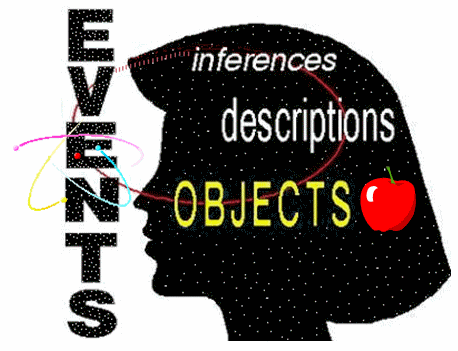
"The Grass is Green?"
Written 1996 by Steven LewisKorzybski built his system on an empirically demonstrable generalization, non-identity, which in my teachings I refer to as the principle of individuality. We can define this principle as "no two situations, parts of situations, persons or stages of processes are the same in all details."
Although we may live in a world of individuality, our nervous systems seek generality. We abstract. Often times, though, we confuse the various orders of abstraction produced by our nervous systems. We confuse the object level with the process level, we confuse the map with the territory, we confuse the inference with the description, we confuse the word with a specific meaning .... These various confusions of the orders of abstractions Korzybski called "identification." To identify to Korzybski meant to not differentiate enough ... to overevaluate by generality (intension), underevaluate by individuality (extension).
Korzybski's prescription was to train oneself to properly evaluate the different orders of abstraction. He was not advocating the abolition of generalizations, as some have suggested. He wanted us to evaluate a map as a map, and not as the territory it could at best only represent. We would not confuse the objective level with the process level, nor the descriptive level with the object level, nor the verbal level with the semantic level, nor the inferential level with the descriptive level ....
Korzybski's interest in modifying our language arose from his empirically demonstrable belief that our daily language habits often grossly misrepresent the structure of our world as revealed by 20th century science, and may therefore lead us to confuse the orders of abstraction. In the case of "the grass is green," Korzybski's concern would be that the statement does not remind the individual that the greenness s/he sees is a joint interaction of a person and their environment. Instead, the form of the statement isolates the observer from the observed, in effect unconsciously projecting the observer's abstractions onto the world outside.
To better map our world we could say "I see the grass as green." Here the observer and observed are united. Such a statement may reflect a degree of consciousness of abstracting, an understanding that what we see "out there" is a product of a unique nervous system responding to unique stimuli. This higher consciousness may permit a person to be more tolerant of others who may see and/or label the grass some other color.
Go to General Semantics Home Page ||| Go to Steven Lewis Home Page